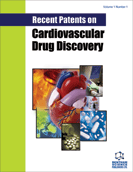Abstract
Kawasaki Disease (KD) is an acute febrile systemic vasculitis of unknown etiology that primarily affects children younger than five years of age. The most reliable treatment for acute-phase KD is the combination of aspirin and high dose (2g/kg) intravenous immunoglobulin (IVIG) therapy. However, IVIG therapy is occasionally associated with serious thromboembolism, probably because of a rapid increase in plasma IgG concentration. Therefore, patients with KD, who are associated with endothelial impairment, are not free from the risk of thromboembolism associated with IVIG therapy. High levels of IgG, immune complex formation, and increased platelet aggregation could increase blood viscosity after IVIG infusion. Increased serum viscosity reduces arterial and capillary blood flow, leading to thrombosis. We have previously reported that single high-dose IVIG therapy for acute KD raises plasma viscosity. Although there is scarce epidemiological information as to the prevalence of thromboembolism associated with IVIG therapy, the occurrence of these complications must be taken into consideration. This article also includes relevant patents on this topic.
Keywords: Kawasaki disease, immunoglobulin, thromboembolism, blood viscosity
 6
6


